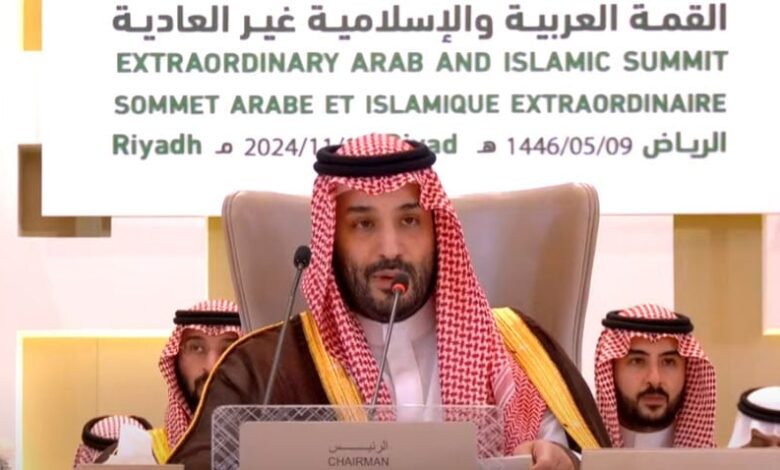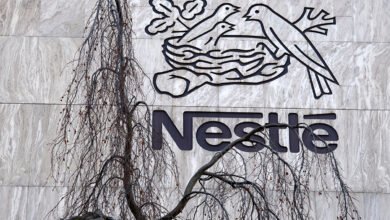
MBS Calls for Urgent Ceasefire in Gaza and Lebanon at Arab Summit
Saudi Crown Prince Mohammed bin Salman wants immediate ceasefires in Gaza and Lebanon while regional tensions continue to rise. The Saudi leader’s call comes at a vital time as the Middle East faces growing instability and humanitarian concerns. His intervention shows a most important diplomatic push to stop the conflict from spreading across the region.
The Crown Prince’s appeal targets multiple conflict zones. These include the ongoing Hamas-Israel confrontation in Gaza and rising tensions at the Lebanon-Israel border. Saudi Arabia has emerged as a leading mediator to achieve regional stability after discussions at the recent Arab-Islamic Summit. World leaders now seek diplomatic solutions to prevent violence from escalating further as the situation draws global attention.
MBS Calls for Immediate Ceasefires
Crown Prince Mohammed bin Salman delivered his harshest criticism of Israel’s military actions at the joint Arab League and Organization of Islamic Cooperation summit in Riyadh. The Saudi de facto ruler called Israel’s campaign in Gaza “genocide” and pointed to the devastating death toll that exceeded 150,000 people, including women and children.
The Crown Prince laid out these crucial requirements:
- Israeli military operations must stop immediately in Palestine and Lebanon
- Affected areas need civilian population protection
- The international community needs to step in and stop the aggression
- Iran’s sovereignty and territorial integrity deserve respect
“The kingdom reiterates its denounciation of the genocide perpetrated by Israel against the brotherly Palestinian people,” MBS declared at the summit. He stressed Saudi Arabia’s steadfast dedication to help Palestinians and Lebanese citizens who face what he called “disastrous humanitarian consequences.”
Regional issues also concerned the Saudi leader, specifically the Al-Aqsa Mosque desecration and Israel’s actions against UN aid agencies in Gaza. His words marked a radical alteration in diplomatic language. Saudi Arabia had earlier thought over normalizing relations with Israel, but these plans stopped after the October 2023 Hamas attack and Israel’s response.
Arab-Islamic Summit Details
Arab and Islamic leaders gathered for a historic joint summit in Riyadh that brought together the 57-member Organization of Islamic Cooperation and the 22-member Arab League to tackle the Gaza and Lebanon crisis. Israel’s aggression forced Arab and Islamic leaders to act quickly through this first-ever meeting, according to the Saudi Press Agency.
The summit focused on these vital priorities:
- Stop all fighting in Gaza and Lebanon right away
- Keep civilians safe
- Send humanitarian aid to Palestinians and Lebanese
- Put united pressure on the international community
- Create lasting peace plans that work
The summit’s final communiqué strongly condemned what it termed as “Israeli war crimes and massacres” against Palestinians. Arab and Muslim leaders showed unprecedented unity by agreeing on the need for a Palestinian state, even though they had different views before about measures against Israel.
Regional diplomatic work continued with this meeting after last year’s gathering in Riyadh where leaders called Israeli actions “barbaric.” This summit showed even stronger unity. Leaders made it clear that peace in the region won’t happen if Palestinian rights are ignored or if anyone tries to avoid the real problems at stake.
Regional Implications and U.S. Relations
Recent conflicts have substantially disrupted US-Saudi relations and reshaped regional diplomatic dynamics. Saudi Arabia and the United States were working toward a potential security agreement before the October 7 Hamas attack. Their talks centered on a defense pact separate from Israeli normalization discussions.
The Kingdom’s diplomatic position now has these key requirements:
- Establishment of an independent Palestinian state
- Recognition of East Jerusalem as Palestinian capital
- Immediate cessation of hostilities in Gaza
- Clear pathway for Palestinian statehood
Saudi Arabia’s stance balances strategic ties with Washington against regional humanitarian concerns. The Kingdom halted US-backed plans to normalize relations with Israel, which shows a quick shift in diplomatic priorities.
Crown Prince Mohammed bin Salman’s position shows broader regional effects as Saudi Arabia emerges as a major power among Iran and Israel. The Kingdom prefers to alleviate diplomatic tensions rather than directly participate in wider regional conflicts. This approach protects its economic vision and domestic stability over military involvement.
Both nations continue to build their relationship. They are working on bilateral agreements that could advance “quite quickly” despite challenges with larger regional deals. This practical approach lines up with Saudi Arabia’s strategy to maintain regional stability while pursuing Vision 2030’s economic transformation goals.
Ongoing Conflicts in Gaza and Lebanon
Gaza and Lebanon face a devastating humanitarian crisis as conflicts grow more intense. UN agencies report that nearly 70% of Gaza’s war casualties are women and children. The death toll has climbed beyond 43,000 Palestinians since October 2023.
Both regions have experienced unprecedented displacement and infrastructure destruction:
- Over 1.4 million Lebanese displaced from their homes
- Approximately 1.9 million Palestinians internally displaced in Gaza
- 85% of Gaza’s population forced to evacuate
- Critical shortages of food, water, and medical supplies
- Severe damage to healthcare facilities and infrastructure
The conflict has substantially escalated between Hezbollah and Israel through cross-border exchanges. Israeli forces have launched what they call “limited, localized and targeted” ground operations in southern Lebanon. Hezbollah has retaliated with rocket attacks that penetrate deeper into northern Israel.
Gaza’s civilian population struggles with severe food insecurity. The World Food Program reports that 97% of households in northern Gaza lack adequate food. People wait for hours at distribution centers for basic necessities while aid delivery remains restricted.
Both regions’ critical infrastructure has sustained extensive damage. Gaza continues to experience a complete power blackout that affects essential services. Lebanon’s southern regions have seen widespread destruction of residential areas and civilian facilities from recent strikes.
Crown Prince Mohammed bin Salman’s diplomatic intervention represents a significant moment in regional politics. This comes at a time when Gaza and Lebanon face worsening humanitarian conditions. The Arab-Islamic Summit showed a unified stance, and MBS’s clear condemnation of Israeli actions points to a transformation in Middle Eastern diplomatic dynamics. These developments highlight why immediate ceasefires and humanitarian aid must reach affected populations quickly.
Saudi Arabia has emerged as a regional arbitrator amid shifting Middle Eastern power structures and international relations. The Kingdom suspended its normalization talks with Israel while maintaining mutually beneficial alliances with the United States. This approach shows a delicate balance between regional stability and humanitarian priorities. The path to lasting peace and security remains complex as civilian casualties rise and critical infrastructure damage continues to worsen.






